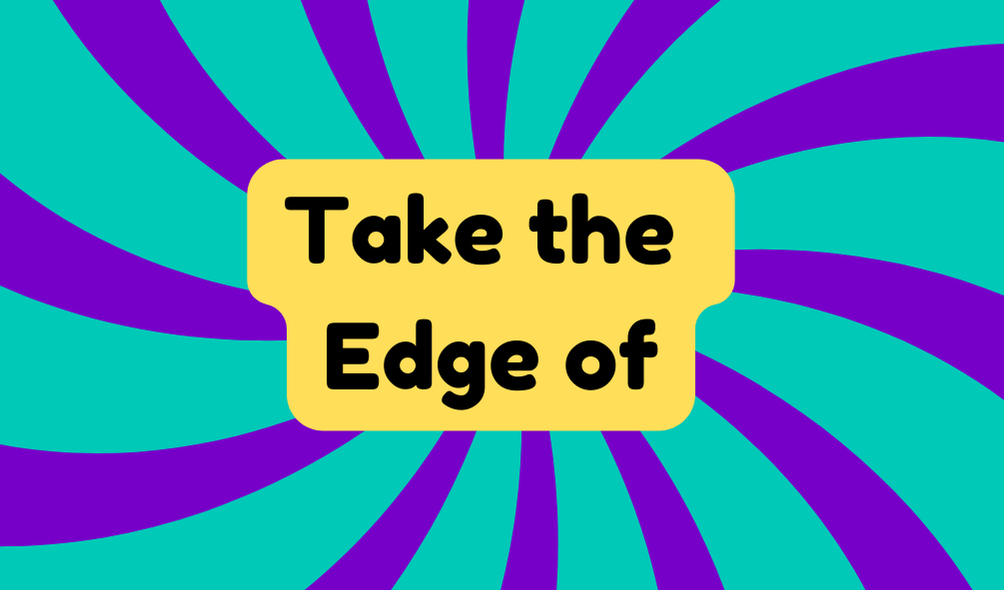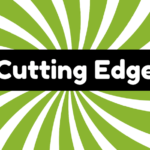The phrase "take the edge off" refers to various methods used to ease stress, pain, or discomfort. Often, people resort to small comforts like a warm bath or listening to music. While these approaches provide temporary relief, they may not address underlying issues. The historical relevance of this saying highlights humanity's ongoing search for comfort amid life's challenges. It raises questions about the effectiveness of quick fixes, inviting a deeper exploration into more sustainable coping strategies.
Synonyms
When exploring synonyms for the phrase "take the edge off," one discovers a variety of terms that attempt to convey a similar sense of relief or mitigation. These alternatives reflect the universal need for edge reduction and emotional relief in life's challenges.
- Alleviate
- Mitigate
- Soothe
- Dull
- Relieve
Each term illustrates nuanced aspects of reducing intensity in experiences, whether they be emotional distress or physical discomfort. While they offer hope for relief, one must realize that the effectiveness of these synonyms may vary from person to person, demanding a critical approach to individual circumstances.
Example of Sentences
Examples of sentences using the phrase "take the edge off" illustrate how this expression can apply across various scenarios in daily life. This phrase often denotes a desire for pain relief or emotional support in challenging situations. Consider the following examples:
- A warm bath can take the edge off stress after a long day.
- Mild exercise may take the edge off anxiety before a presentation.
- Listening to music can take the edge off loneliness during tough times.
- A light snack helps take the edge off hunger after an exhausting workout.
- Talking to a friend often takes the edge off feelings of sadness.
These demonstrate the phrase's versatility in everyday usage.
Origin
The phrase "take the edge off" possesses a history that reflects a common human need for relief in various forms of discomfort. Emerging in the early 1900s, its historical usage highlights an enduring pursuit for coping strategies across cultures. This idiomatic expression symbolizes both the psychological and physical attempts to temper life's challenges. Its cultural significance is profound, resonating within diverse contexts where individuals seek to alleviate stress, pain, or anxiety. While the phrase signifies helpfulness, it is important to recognize that it can be a temporary fix rather than a true solution, urging a deeper understanding of effective relief methods.
Collocations
Collocations related to the phrase "take the edge off" reveal its versatility in everyday language. These expressions emphasize both edge relief and emotional mitigation, illustrating their practical use in various situations. Understanding these collocations can enhance communication and provide insight into coping strategies. Particularly, the following phrases stand out:
- Take the edge off stress
- Take the edge off anger
- Take the edge off pain
- Take the edge off anxiety
- Take the edge off fatigue
Such collocations encourage individuals to recognize methods for relief, though one must approach them with a critical eye, as they are not always foolproof solutions.
How to Use in Everyday Language
How can one effectively incorporate the phrase "take the edge off" into everyday language? This expression can enhance communication in various everyday situations, allowing individuals to succinctly address stress, pain, or discomfort. For instance, one might say, "A quick walk can take the edge off a long day," illustrating a practical application. Additionally, its usage can signal understanding and empathy in conversations regarding emotional challenges or physical discomfort. While widely recognized, the phrase requires thoughtful application to avoid sounding cliché or insincere. Fundamentally, employing "take the edge off" thoughtfully enriches dialogue and fosters connection among individuals facing challenges.
Why Is It Still Relevant Today?
Why does the phrase "take the edge off" continue to find relevance in today's fast-paced world? In an era marked by mounting pressures, effective stress management remains essential. This expression encapsulates the universal quest for emotional relief amid chaos, highlighting the human need for coping mechanisms that can mitigate life's challenges. While contemporary solutions abound, the essence of "taking the edge off" serves as a reminder of simpler approaches—be it through mindfulness, social support, or restorative practices—that can effectively alleviate discomfort. Accordingly, the phrase underscores a timeless notion: seeking balance in a demanding environment is both necessary and relevant.







